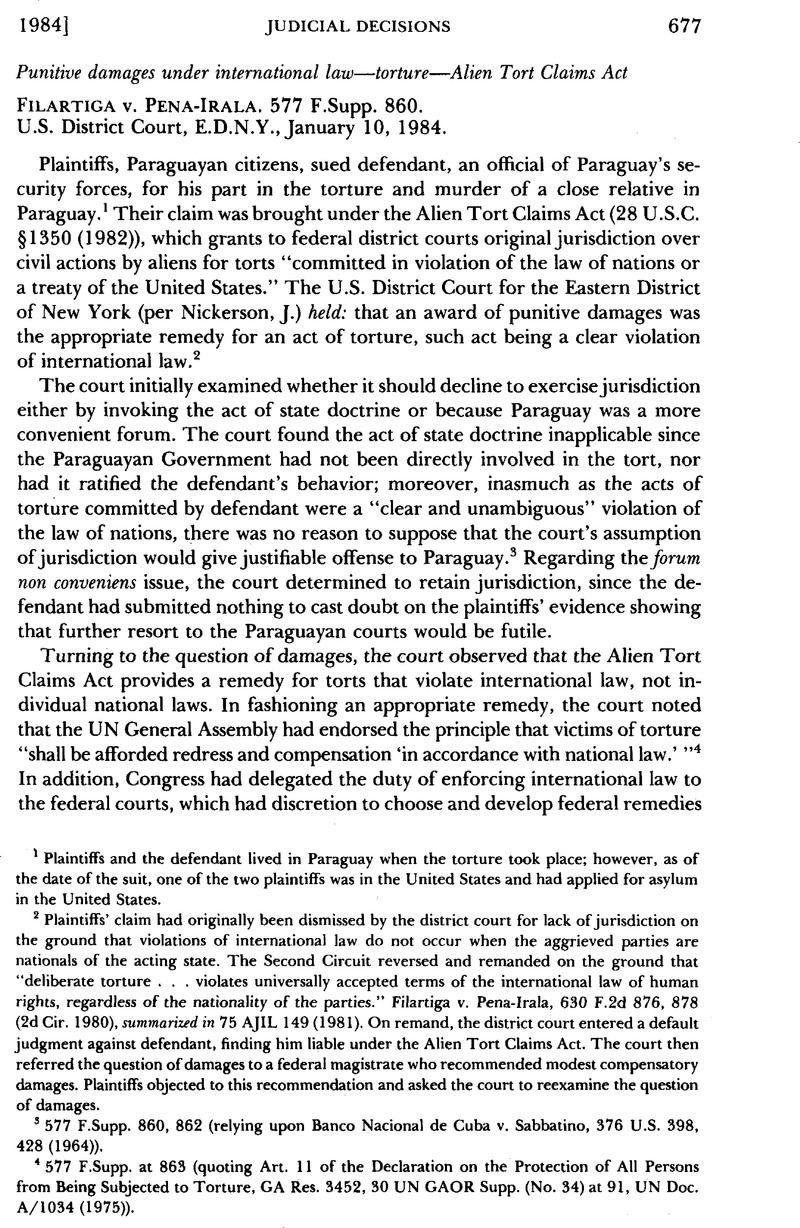Published online by Cambridge University Press: 23 March 2017

1 Plaintiffs and the defendant lived in Paraguay when the torture took place; however, as of the date of the suit, one of the two plaintiffs was in the United States and had applied for asylum in the United States.
2 Plaintiffs’ claim had originally been dismissed by the district court for lack of jurisdiction on the ground that violations of international law do not occur when the aggrieved parties are nationals of the acting state. The Second Circuit reversed and remanded on the ground that “deliberate torture . . . violates universally accepted terms of the international law of human rights, regardless of the nationality of the parties.” Filartiga v. Pena-Irala, 630 F.2d 876, 878 (2d Cir. 1980), summarized in 75 AJIL 149 (1981). On remand, the district court entered a default judgment against defendant, finding him liable under the Alien Tort Claims Act. The court then referred the question of damages to a federal magistrate who recommended modest compensatory damages. Plaintiffs objected to this recommendation and asked the court to reexamine the question of damages.
3 577 F. Supp. 860, 862 (relying upon Banco Nacional de Cuba v. Sabbatino, 376 U.S. 398, 428 (1964)).
4 577 F. Supp. at 863 (quoting Art. 11 of the Declaration on the Protection of All Persons from Being Subjected to Torture, GA Res. 3452, 30 UN GAOR Supp. (No. 34) at 91, UN Doc. A/1034 (1975)).
5 577 F. Supp. at 863.
6 Id. at 865 (citing de Letelier v. Republic of Chile, 502 F. Supp. 259 (D.D.C. 1980)).
7 577 F. Supp. at 866.
8 See de Letelier v. Republic of Chile, 502 F. Supp. 259 (D.D.C. 1980); Malandris v. Merrill Lynch, Pierce, Fenner & Smith Inc., 447 F. Supp. 543 (D. Colo. 1977); Brink’s Inc. v. City of New York, 546 F. Supp. 403 (S.D.N.Y. 1982).